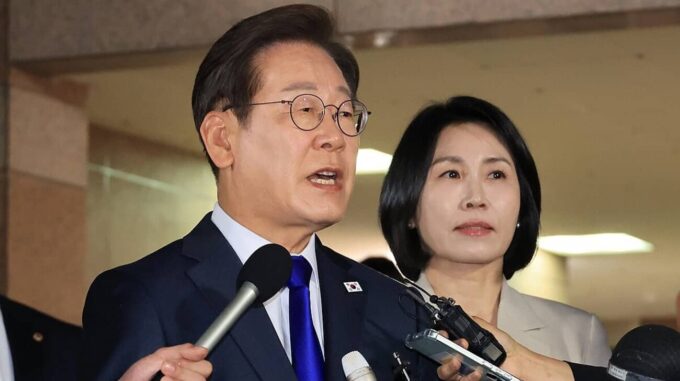To South Korea’s presidency, the opposition candidate’s victory: Lee Jae-myoon returns to power in a dramatic way

A new era in South Korea’s political life has been marked by a significant event: opposition leader Lee Jae-myoon won an unexpectedly decisive victory in the recent snap presidential elections held last week. The voting results not only indicated a clear advantage for the candidate but also highlighted a profound political shift in a country still trying to recover from recent crises. Official sources, including CNN and Yonhap Agency, reported that Lee Jae-myoon managed to surpass his closest opponent by more than 2.8 million votes, signaling an important symbolic and political message to both the domestic audience and the international community. These results were officially confirmed by the National Election Commission, and voter turnout broke all records — nearly 80% of the over 44 million eligible South Korean citizens participated in voting, the highest since 1997. This election was not only a reflection of political preferences but also an expression of the tremendous political will of the population, which has endured six months of tension and uncertainty. It has been exactly that much time since the previous president, Yoon Suk-yeol, complicated the situation with radical steps, declared martial law, and led the country into instability. The new opposition leader, Lee Jae-myoon, has already promised to start a new chapter in domestic policy and to restore public trust in government institutions. Greetings and support for the new president came from representatives of the ruling People Power Party — the well-known politician Kim Moon-soo, in his speech, stated that he "respectfully and humbly accepts the decision of the people." This gesture symbolized not only political decorum but also a willingness to cooperate in stabilizing the country’s situation. The current victory marks a significant symbolic return of Lee Jae-myoon to the presidential arena: in 2022, he narrowly lost to Yoon Suk-yeol by less than one percent. Now, after counting all ballots, he has secured a convincing win and has noticeably consolidated his course toward a change in the country’s political trajectory. With the country now under new leadership, South Korea hopes for reduced tensions and stabilization. Interestingly, the elections took place on the eve of critical challenges for the country: shifts in the global economy, rising tariffs, the potential deepening of recession, and ongoing external political uncertainties. At the same time, a country with a stable democracy and high economic activity must strive to find a common voice in addressing these challenges. Speaking after his victory, Lee Jae-myoon emphasized the importance of restoring democracy and economic development. He promised to work on strengthening internal stability and to intensify efforts to improve the living standards of the population, which has endured much in this short period. Amid political reshuffling, the country aims to regain its balance even in the face of global challenges and internal upheavals. It is worth recalling that the snap elections, which took place on June 3, were triggered by political crises related to the impeachment of former President Yoon Suk-yeol. His removal was a consequence of unsuccessful attempts to impose martial law at the end of 2024, leading to a large-scale crisis in the political system and society. The new phase of the country’s political life is characterized by a pursuit of stability, new opportunities, and a rebuilding of public trust. Thus, South Korea is now entering a new historical epoch — with Lee Jae-myoon’s victory leading the country forward, aiming to overcome past difficulties and move toward a more stable and prosperous future.

